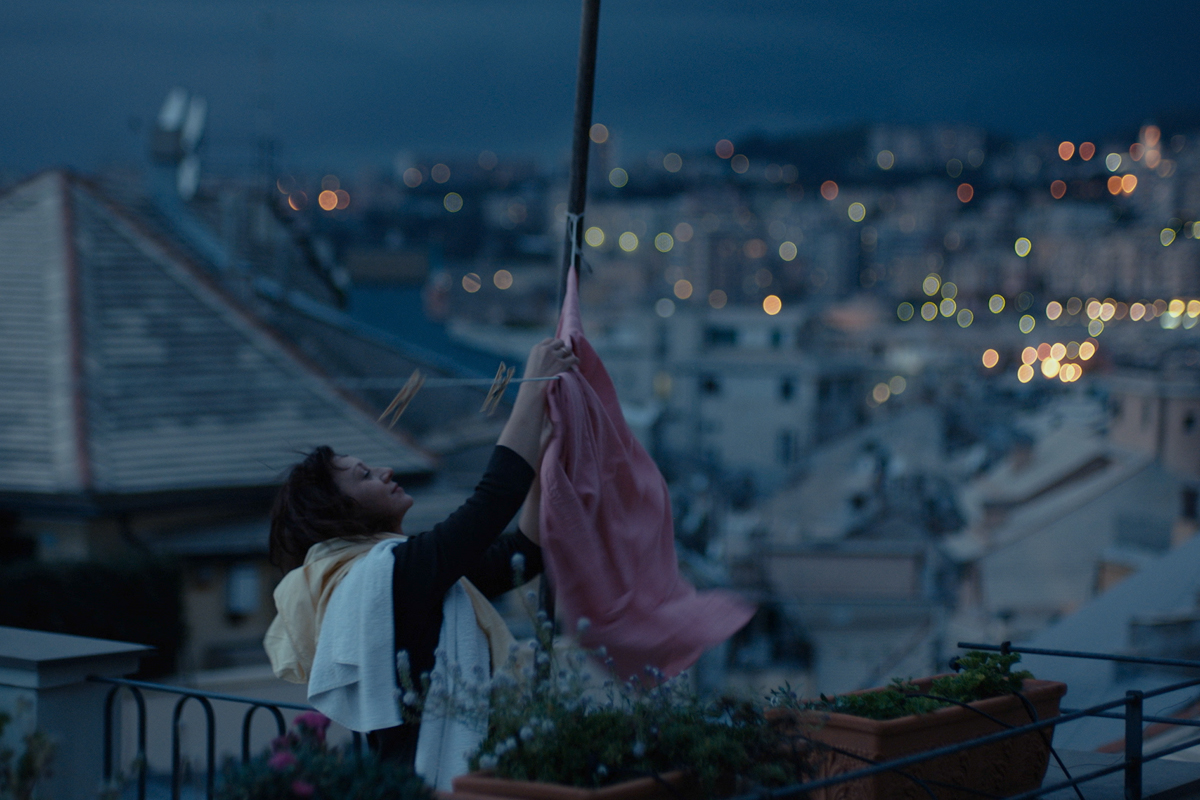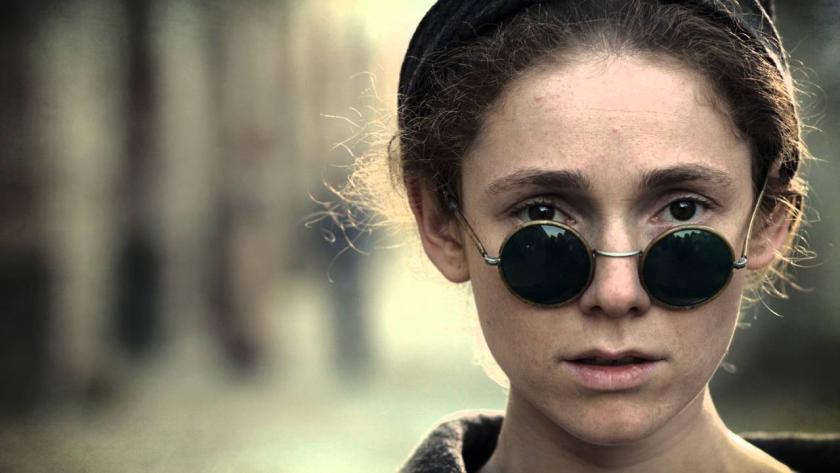With Ukraine embroiled in conflict and a currency crisis the Odessa International Film Festival does not have the budget to bring in big stars. In any case, most of those pampered A-listers would have been nervous to go to what they or their advisers would have assumed to be a conflict zone. One really has to to admire the Festival’s volunteer-fuelled enthusiasm - it may be the underdog of international film fests, but it delivers an enlightening, elegantly organised and hugely enjoyable event.
The Brit element was out in relative force this year. The winner of the festival’s main prize - the Golden Duke - was Chanya Button’s Burn, Burn, Burn (which represented a great chance to show off some superb locations as identified by a dying pal’s wish of where his ashes should be scattered). The nearest thing to international legends present this year were also Brits: Christopher Hampton (best known internationally for the Oscar-winning script for Dangerous Liaisons) headed up the International Jury, and Peter Webber, the suave homme du monde who also got an Oscar nomination for Girl with a Pearl Earring. Both gave workshops in which they revealed, among other insights, how success often comes from odd accidents.
Webber was returning to Odessa after chairing the international jury two years ago. Back then Odessa was more scary - it was the week the Malaysian airliner was shot down over the skies of Ukraine. It was also the moment the rest of the world realised the bare-faced brazenness of Russian propaganda about Ukraine (“the plane flew with dead bodies”).
 Being in the crossfire of the information wars is something Ukraine is now well used to - it’s striking how one Odessa taxi-driver will tell you diametrically opposing views to another of what actually transpired at the Maidan, depending which media they are tuned into. Which is no doubt one reason why the longest queues at OIFF are for the documentaries - people here seem to feel there is going to be at least some semblance of an authentic, genuine voice in such films. The winner of the film critics' prize for best Ukrainian film was VARTA 1, Lviv, Ukraine which wrangled with complex ideas about democracy and autonomy.
Being in the crossfire of the information wars is something Ukraine is now well used to - it’s striking how one Odessa taxi-driver will tell you diametrically opposing views to another of what actually transpired at the Maidan, depending which media they are tuned into. Which is no doubt one reason why the longest queues at OIFF are for the documentaries - people here seem to feel there is going to be at least some semblance of an authentic, genuine voice in such films. The winner of the film critics' prize for best Ukrainian film was VARTA 1, Lviv, Ukraine which wrangled with complex ideas about democracy and autonomy.
The revelation of the festival was Doris Dörrie’s From Fukushima with Love. If you had to propose a premise least likely to produce an enjoyable film, it might be this: a German clown goes to work in a camp for displaced persons for victims of the Fukushima earthquake. And yet it was a moving film, brilliantly shot and edited. The best actor award was rightly shared between its stars Rosalie Thomass and Kaori Momoi (pictured above). Best Picture went to Romanian director Adrian Sitaru’s Illegitimate, a controversial film dealing with abortion among other topics - yet the most discussed thing about it was its budget of 7,000 Euros.
 If there was no Ukrainian film with the obvious international appeal and startling originality of Myroslav Slaboshpytskiy’s 2014 The Tribe, which won an award in Cannes, there were a couple of impressive new features. Oddly Slaboshpytskiy won best actor for one of them, a brief role in My Grandmother Fanny Kaplan. This was a meditation on Pravda, both the paper and the concept, which asked whether the titular revolutionary really did attempt to assassinate Lenin. The Golden Duke for best Ukrainian film went to Taras Tkachenko’s lively and empathetic The Nest of the Turtledove which brought the problems of the European Union and Ukrainian migrant labour firmly into focus. It didn’t quite pull off its mix of as-if-for-TV interviews, archive and newly shot material, but the lead actress Kate Molchanova (pictured above) was luminous. As for Slaboshpytskiy, the word on his new film Luxembourg, which will be set in Chernobyl, is that it will be finishing shooting this winter - they need some snow, apparently - although a work in progress is expected to be shown at the Venice Film Festival.
If there was no Ukrainian film with the obvious international appeal and startling originality of Myroslav Slaboshpytskiy’s 2014 The Tribe, which won an award in Cannes, there were a couple of impressive new features. Oddly Slaboshpytskiy won best actor for one of them, a brief role in My Grandmother Fanny Kaplan. This was a meditation on Pravda, both the paper and the concept, which asked whether the titular revolutionary really did attempt to assassinate Lenin. The Golden Duke for best Ukrainian film went to Taras Tkachenko’s lively and empathetic The Nest of the Turtledove which brought the problems of the European Union and Ukrainian migrant labour firmly into focus. It didn’t quite pull off its mix of as-if-for-TV interviews, archive and newly shot material, but the lead actress Kate Molchanova (pictured above) was luminous. As for Slaboshpytskiy, the word on his new film Luxembourg, which will be set in Chernobyl, is that it will be finishing shooting this winter - they need some snow, apparently - although a work in progress is expected to be shown at the Venice Film Festival.
Still, if this wasn't a vintage year in local film-making, that is partly due to the hiatus in production caused by the events of two years ago. The Work in Progress and Pitching sections suggested that both the number and quality of films coming soon will be impressive. Whether that wave will meet with theatre director Vlad Troitsky’s vision of a dynamic and original cultural space located between “tired, cynical” Europe and authoritarian Russia remains to be seen.















Add comment